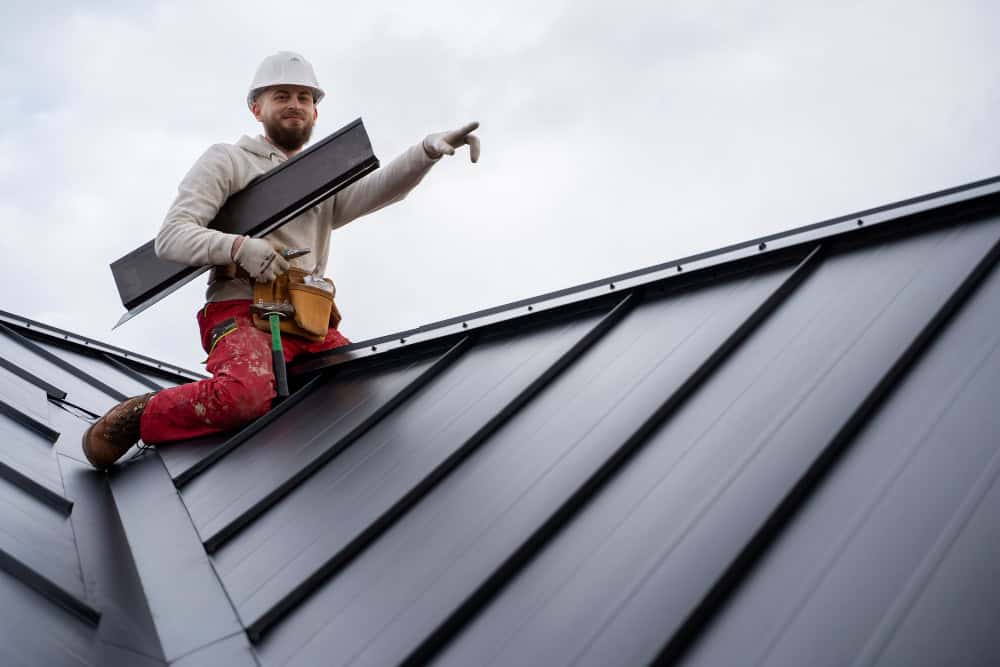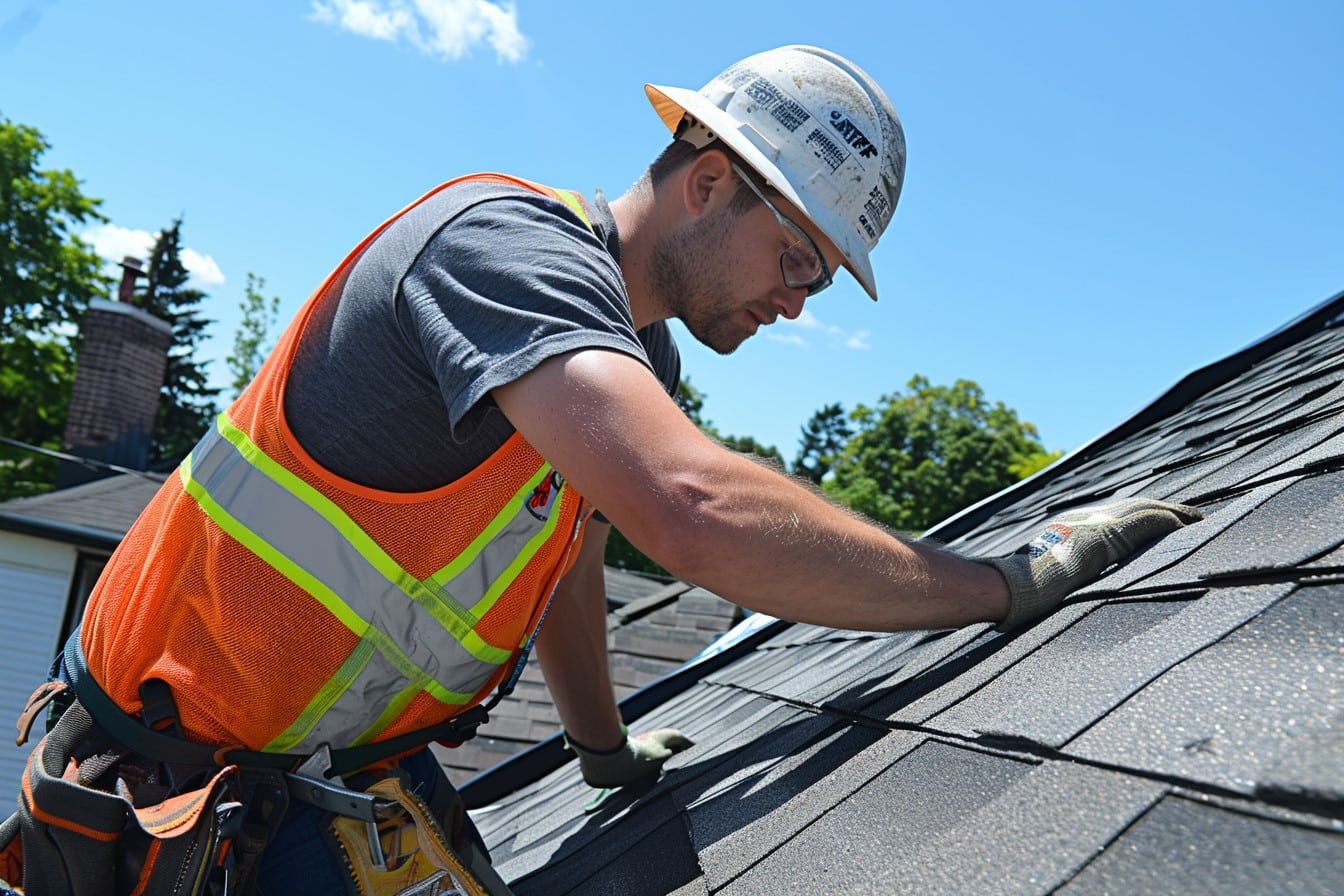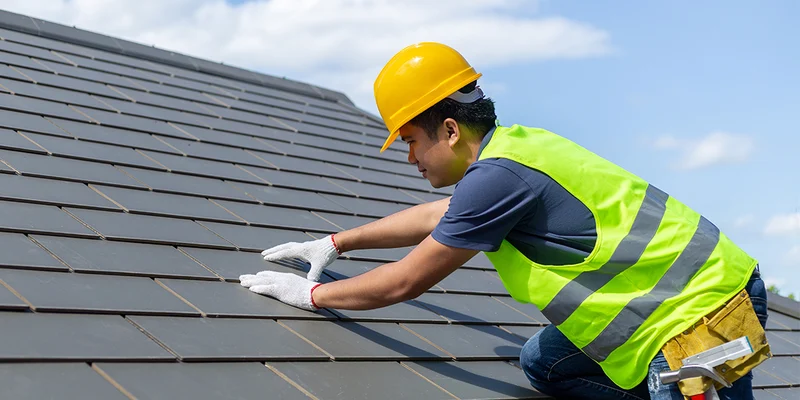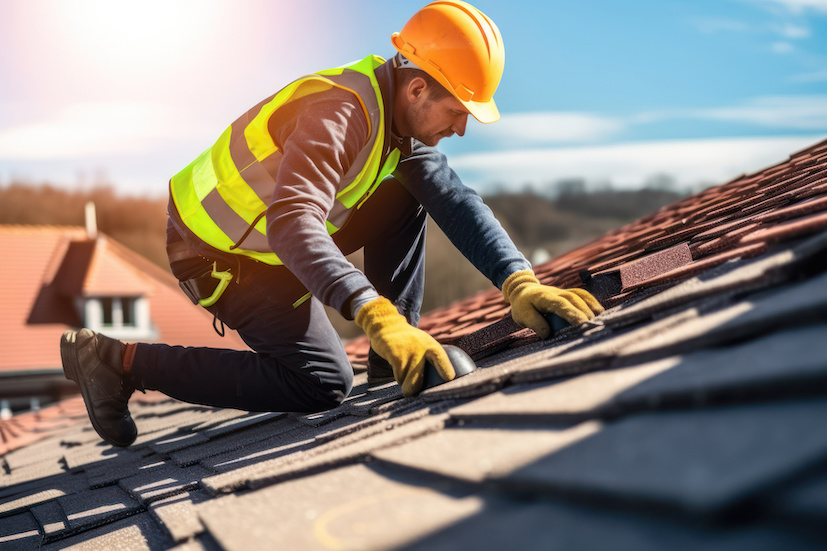
Routine roof inspections are key to maintaining the longevity of your roof, and SK Quality Roofing is here to help. As a reliable roof inspection company in Delray Beach, we offer thorough assessments to identify any potential issues before they become serious problems. Our experienced team will examine your roof’s condition, ensuring that it’s safe, secure, and ready to withstand Florida’s unpredictable weather. Schedule your free consultation today by calling (561) 276-8040, and let us provide you with peace of mind by keeping your roof in top shape.
What to Expect During a Roof Inspection in Delray Beach
A roof inspection is an essential part of maintaining the integrity of your home. Whether you’re planning to buy a new house, address existing issues, or prepare for an insurance renewal, understanding what a roof inspection involves can help you make informed decisions about your property.
Why Roof Inspections Matter
Regular roof inspections are vital for the longevity and safety of your home. Over time, your roof can experience wear and tear from the elements, such as wind, rain, and the intense Florida sun. Small issues may go unnoticed, but without timely inspections, these issues could lead to costly repairs or even the need for a full roof replacement.
A roof inspection allows you to catch problems early and ensure your roof is performing as it should. Whether it’s damaged shingles, leaks, or improper ventilation, a professional roofer can identify these concerns and offer solutions before they become major problems.
The Inspection Process
Roof inspections vary depending on the roof’s age, materials, and the roofing company you hire. However, most roof inspections will follow a similar set of steps. Here’s a breakdown of what you can expect:
Exterior Inspection
The first part of a roof inspection is a thorough look at the exterior of your roof. This is typically done by a professional roofer who will carefully evaluate the condition of the materials, structure, and overall performance of the roof. Here are some specific areas they will assess:
- Shingles or Tiles: The inspector will check for missing, cracked, or curled shingles. If tiles are present, the roofer will look for any cracks or loosened pieces. Any damaged or missing materials should be replaced to prevent leaks and further deterioration.
- Flashing: Flashing is installed around areas like chimneys, vents, and skylights to prevent water from seeping in. The inspector will check for rust, cracks, or other signs of wear that could lead to leaks.
- Gutters and Downspouts: Clogged or damaged gutters can cause water to back up onto your roof, which can lead to rot. A professional roofer will ensure that gutters and downspouts are free of debris and functioning properly.
- Roof Valleys: The valleys, where two roof slopes meet, are critical areas that require proper flashing and drainage. The inspector will look for any signs of deterioration or wear that could lead to leaks.
- Roof Vents: Proper ventilation is essential for maintaining the health of your roof and attic. A roofer will check vents for any blockages or damage, ensuring that air is circulating as it should.
Interior Inspection
After assessing the exterior, the next step is to check the interior of your home, specifically the attic. The roofer will look for signs of moisture, mold, or mildew, which can indicate leaks or inadequate ventilation. Some common signs that an interior inspection may reveal include:
- Water Stains on the Ceiling: Water stains or dark spots on the ceiling are often an indication of a roof leak. The inspector will trace the source of the leak and provide recommendations for repair.
- Insulation Condition: The insulation in your attic should be dry and free from mold. If insulation is wet, it can affect your home’s energy efficiency and could be a sign of a roof leak.
- Ventilation Issues: Poor attic ventilation can lead to condensation, which can damage your roof structure. The inspector will ensure that your roof has adequate ventilation to prevent moisture buildup.
- Structural Damage: The roof supports, beams, and trusses are inspected for signs of wear or damage. If structural issues are found, they should be addressed immediately to prevent further damage.
Evaluation of Roof Performance
During a roof inspection, the inspector will also evaluate how well the roof is performing. This includes looking at its ability to handle water drainage and whether there are any signs that the roof is underperforming in certain areas. For example:
- Water Drainage: If the roof has a low slope, water drainage can be a concern. The inspector will check for areas where water might pool or not drain properly. This could lead to water infiltration and potential damage to the structure.
- Roof Slope: A roof with improper slope can cause issues with water drainage, leading to pooling and leaks. The inspector will assess the pitch of your roof and recommend any necessary corrections.
- Age of the Roof: The inspector will evaluate the roof’s age and overall condition. Older roofs are more susceptible to damage, and the inspector will help you determine if it’s time for a replacement.
Identifying Common Problems
Roof inspections also focus on identifying common issues that could lead to bigger problems down the line. Some of the most common problems include:
- Leaks: Leaks are one of the most obvious signs of roof damage. The inspector will search for signs of leaks in both the interior and exterior of the roof. Leaks can often be traced back to damaged shingles, faulty flashing, or clogged gutters.
- Punctures or Holes: Whether from fallen debris or natural wear and tear, punctures in your roof can lead to water infiltration and structural damage. The inspector will check for any holes or weak spots that need immediate attention.
- Granule Loss: For asphalt shingle roofs, the loss of granules is a sign that the shingles are aging and losing their effectiveness. The inspector will check for granule loss, which can indicate the need for repairs or replacement.
- Moss or Algae Growth: Moss and algae can grow on roofs, particularly in areas with heavy moisture. These growths can retain water and promote decay, so it’s important for the inspector to address any signs of moss or algae.
Providing Recommendations and Next Steps
After the inspection is complete, the roofing company will provide you with a detailed report that outlines their findings. This report will typically include:
- Condition of the Roof: A summary of the roof’s current condition, including any problems found during the inspection.
- Recommended Repairs: If issues were identified, the inspector will provide a list of recommended repairs or maintenance tasks. This could include replacing missing shingles, fixing leaks, or improving ventilation.
- Estimated Costs: Depending on the severity of the issues, the inspector will give an estimate of how much repairs will cost and how long they will take.
- Timeline: If repairs are necessary, the roofing company will provide a timeline for when the work can be scheduled.
How Frequently Should You Schedule a Service?
Roof inspections are one of the most effective ways to maintain the health of your home. Your roof serves as the first line of defense against the elements, and regular inspections can help extend its lifespan. But how often should you have your roof inspected? The answer depends on several factors, including the age of your roof, its material, and the weather conditions in Delray Beach.
While every roof is different, there are general guidelines that can help you determine how often you should schedule a roof inspection. Below are some factors that can influence your decision.
Age of Your Roof
The age of your roof plays a significant role in determining how often it should be inspected. Roofs made from materials like asphalt shingles typically last between 20 to 30 years, while tile roofs can last longer—often 40 years or more. Older roofs tend to develop issues more frequently, which is why they require more regular attention.
If your roof is nearing the end of its expected lifespan, you should consider having it inspected at least twice a year. Even if no obvious damage is visible, wear and tear over time can make your roof more vulnerable to leaks and other issues. Regular inspections allow you to address problems before they become serious.
Climate and Weather Conditions
Delray Beach and the rest of Florida are known for their hot summers, frequent thunderstorms, and hurricane seasons. Your roof is constantly exposed to these extreme conditions, which can cause wear and tear over time. High winds, heavy rain, and even the intense UV rays from the sun can all damage roofing materials.
In general, roofs in Florida should be inspected at least once a year. However, if your area is prone to hurricanes or tropical storms, you may want to schedule additional inspections. For example, it’s a good idea to have a roof inspection done before hurricane season begins, typically in late spring or early summer, to ensure that your roof is ready for potential storms.
Roof Type and Material
Different roofing materials have varying levels of durability. For example, asphalt shingle roofs may need more frequent inspections compared to tile or metal roofs, which tend to last longer and require less maintenance. Here are some guidelines based on common roof materials:
- Asphalt Shingles: Shingle roofs typically last between 20 and 25 years. They are more vulnerable to damage from wind and hail, so annual inspections are recommended.
- Tile Roofs: Tile roofs are more durable and can last 40 years or more. A bi-annual inspection is generally sufficient, but if you live in an area with heavy storms, more frequent checks are advisable.
- Metal Roofs: Metal roofs are known for their longevity, often lasting over 50 years. While they require less frequent inspections, having a professional check your roof every two years can help keep it in top condition.
- Flat Roofs: Flat roofs are particularly vulnerable to water pooling and drainage issues. They should be inspected at least twice a year to ensure that no water is accumulating and causing potential damage.
After Severe Weather Events
Even if you’ve already had a roof inspection recently, you should schedule another one after a severe weather event. Hurricanes, heavy storms, or even hail can cause hidden damage to your roof that isn’t immediately visible. It’s essential to have a professional roofer assess the condition of your roof after any significant weather event to catch any issues early.
Sometimes, damage caused by storms may be subtle. For example, wind may have loosened shingles, or water could have infiltrated areas that are hard to inspect on your own. A professional inspection will help determine if repairs are needed, especially before another storm hits.
Signs That Your Roof Needs Immediate Inspection
There are certain signs that indicate a roof inspection is needed sooner than later. Some of these warning signs include:
- Leaks: If you notice any water spots on the ceiling or walls, or if there’s visible water dripping, it’s a clear indication that your roof needs immediate attention.
- Sagging Roof: A sagging roof can be a sign of serious structural damage. This can happen if water has accumulated in certain areas or if the roof’s support structure has weakened.
- Missing or Damaged Shingles: If you see missing shingles or noticeable damage to the roof’s surface, an inspection is necessary to prevent further damage and water infiltration.
- Granule Loss: If your asphalt shingles are losing granules (which often appear as small, dark spots in your gutters or downspouts), it could indicate that your roof is aging and may need repair or replacement.
- Debris on the Roof: Fallen branches, leaves, or other debris can cause issues by blocking gutters or potentially damaging roofing materials. It’s important to remove debris promptly and inspect the roof for hidden damage.
Contact a Delray Beach Roof Inspections Company
SK Quality Roofing is a reliable roof inspection company in Delray Beach. We offer thorough assessments to keep your roof in top condition. Regular inspections are essential to identifying potential problems before they escalate, saving you time and money. Call us today at (561) 276-8040 for a free consultation, and let us help you maintain the health and longevity of your roof.



